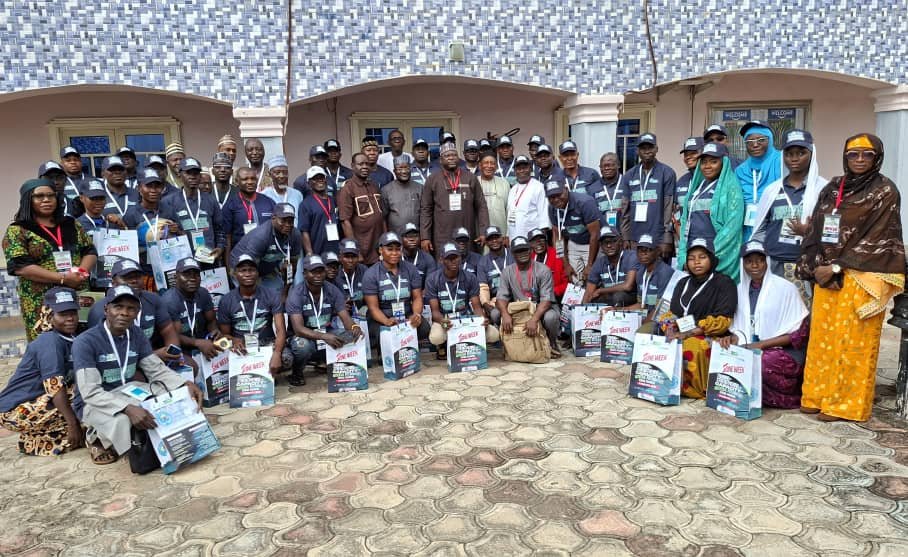As part of a broader initiative to enhance livestock productivity and modernize animal breeding practices, the Taraba State office of the Livestock Productivity and Resilience Support Project (L-PRES) has launched a week-long training workshop focused on artificial insemination (AI) technologies.
Speaking at the opening ceremony in Jalingo, the state Coordinator of L-PRES, Hananiah Albert, highlighted the transformative potential of artificial insemination and Artificial Intelligence (AI) technologies in revolutionizing agriculture.
He said these tools are critical to improving genetics, livestock health, and economic outcomes for farmers across the state.
“Artificial insemination is one of the most powerful tools we have to improve animal breeding and accelerate genetic progress,” Albert stated.
“Through this technology, farmers can access superior livestock genetics without the burden of owning expensive breeding bulls, thereby enhancing milk production, meat quality, and overall livestock performance,” Albert stated.
The training, which brought together 90 participants from all 16 local government areas and two special development areas in the state, is designed to equip AI service providers with modern, science-based techniques to improve livestock breeding outcomes in rural communities.
Albert stressed that while technology is important, the success of such programs ultimately depends on the expertise and professionalism of the service providers who connect science to farmers on the ground.
He identified key challenges in the sector, including limited technical capacity, lack of refresher courses, inadequate equipment, and poor semen handling, gaps that the training aims to address.
Read Also:
LG Electronics opens B2B Academy in Lagos to empower partners, students, others
Google launches Gemini CLI Extension for Firebase, elevating AI-Powered App Development
TAHRIFF 2025 kicks off in Taraba with a call to action through film, storytelling
Also speaking at the event, the state Commissioner for Agriculture and Food Security, Prof. Nicholas Namessan, represented by the Director of Veterinary Services, Dr. Francis Nathan, urged participants to maximize the training opportunity and become catalysts for change in their localities.
“Our goal is simple: to build a strong, well-trained team of AI technicians across the state who can deliver professional, reliable, and effective breeding services to livestock farmers, especially those in rural areas,” Prof. Namessan said.
He assured the trainees of continued support from the ministry in the form of refresher training, supply of technical inputs, and logistical assistance to ensure the program’s long-term sustainability and impact.
Further enriching the scientific foundation of the program, Prof. P.L. Rekwot delivered a keynote lecture tracing the history of artificial insemination and explaining best practices for semen collection, preservation, and delivery.
He encouraged participants to take their role seriously, noting that their work would directly impact food security and rural livelihoods.
The training is expected to significantly improve the quality and reach of livestock breeding services in Taraba State and align with national goals to boost food production, resilience, and agricultural innovation.






